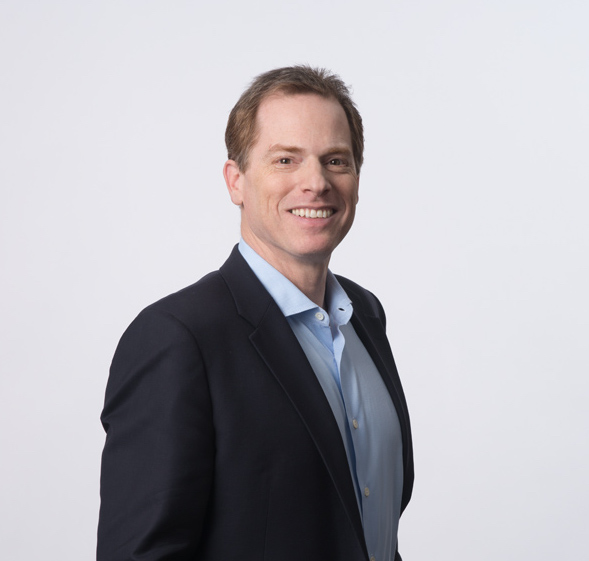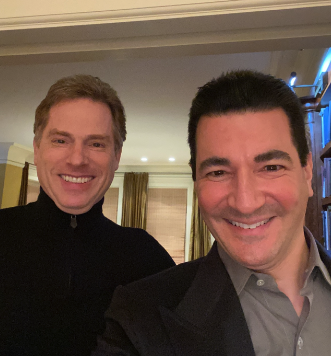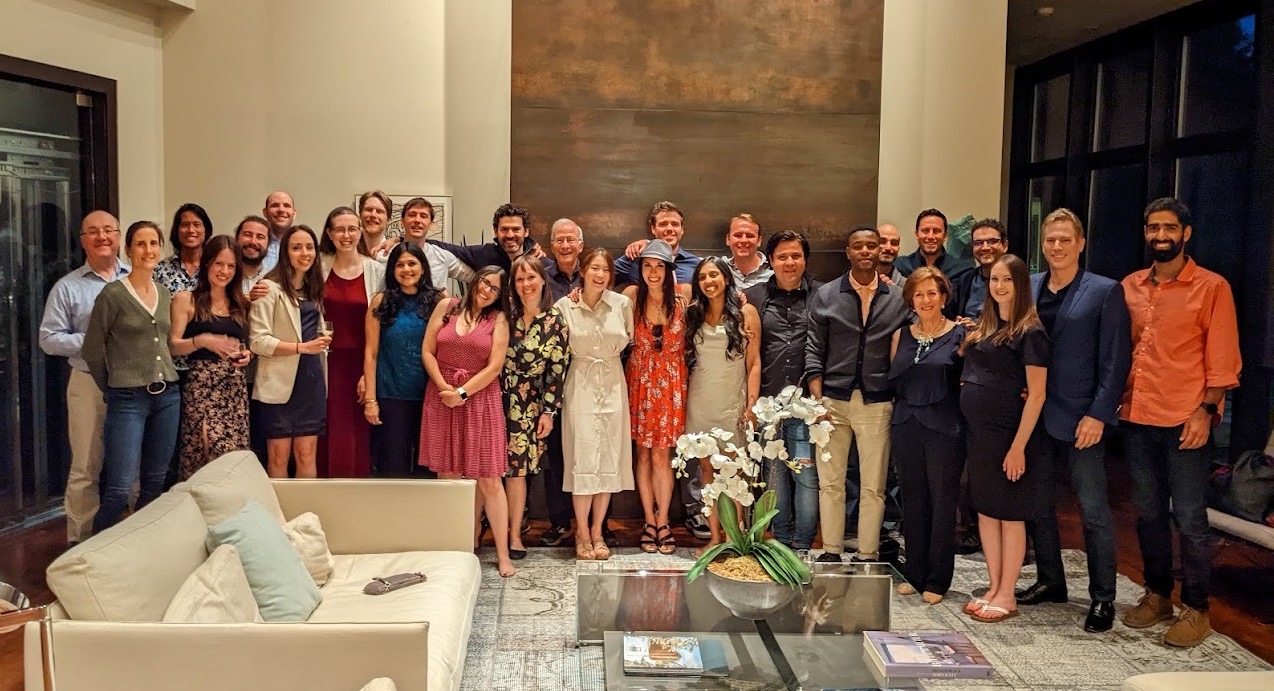Reimagining the Delivery of Mental Health

PAUL GILBERT
(DCI 2018)
With a strong background in digital innovation for mental health, Paul Gilbert came to Stanford DCI looking for his next big thing. The DCI experience and 202 meetings for coffee helped him find it – using AI and smartphones to re-invent the delivery of mental health care.
Using digital tools to help with mental health issues is nothing new for Paul Gilbert (DCI 2018). But relying on a device that nearly everyone has on hand nearly all of the time – our smartphones – as an early warning system to detect potentially catastrophic depressive symptoms has given him a new mission. Imagine using the phone and AI to address depression and suicidal ideation directly while also taking on the failures of the mental health care system and the need to change it from reactive and one size fits all to pro-active, personalized, and predictive.
Earlier in his career, Paul and his life/business/DCI Partner Amy Ellis (DCI 2018) co-founded MedAvante, Inc., a company that transformed the ability of pharmaceutical companies to conduct and more accurately measure the outcomes of psychiatric and neurological clinical drug trials. By the time Paul and Amy left, MedAvante operated in over 40 countries and was backed by nearly $50 million in private equity.
When Paul came to DCI in January 2018, he knew that he wanted another (ad)venture in the mental health field but was unclear what direction that might take. So he ‘gorged’ himself on all DCI had to offer, spending 15 hours a day, seven days a week on coursework and class projects.
As a Continuing Fellow, Paul embarked on a series of informational interviews (read: coffees) with founders, CEOs, venture capitalists, and entrepreneurs, students, professors, and experts of all kinds. He asked each person one overriding question: “What is the most exciting thing you are working on now?”
After 202 of these informational coffees, Paul was ready to move forward (with a little help from Amy, along the lines of “enough is enough”). In early 2020 he joined four co-founder scientists in need of a CEO at Health Rhythms, a company that uses smartphones to measure mental health, anticipate clinical deterioration before it reaches crisis proportions, and deliver personalized, just-in-time interventions made possible by patients simply keeping the phone on or near themselves.
The patient is free to reject the idea, but the company’s peer-reviewed clinical trial showed that these personalized suggestions can deliver twice the improvement compared to antidepressants alone. For patients on the verge of a serious mental health problem, the Health Rhythms monitoring methodology also gives the health system a way to direct limited provider capacity to those who most need it.

Scott Gottlieb, MD, former FDA Commissioner and Director (10 years) of Paul’s former company, meeting with Paul to convince him to do another startup.
How does it work? HealthRhythms uses the sensors that are already available on all smartphones to detect ‘behavioral’ vital signs relevant to nearly all psychiatric disorders, including the regularity of routines in the patient’s life, the intensity and duration of physical activity, sleep/wake timing, and proxies for the extent of the patient’s social engagement.
This information is then used, again via the phone, to give the patient personalized behavior change suggestions, or ‘micro-interventions,’ aimed at healthier behaviors. So, for example, a patient who has later wake times on weekends might receive a note saying “Hi Mark, we see you have a regular wake time on weekdays. A lot of studies show that, challenging as it may be on a Saturday or Sunday morning, sticking to a more or less regular wake time seven days a week is good for your mood and your overall health. What would you think about meeting a friend on weekend mornings for a walk or coffee, rather than sleeping late?”

The Health Rhythms team gathers to celebrate.
What attracted Paul to this next venture was that he saw the technology as solid, the solution as elegant. He notes that, “People touch this little supercomputer – their smartphones – 2500 times a day.” For Paul, what HealthRhythms offers is “a game-changer, making our ‘addiction’ to our phones a force for good.” After a long search, it was also the perfect fit, as Paul could use his experience in measuring behavioral health to commercialize the product, build a world-class team, and raise the money to scale it.
And Silicon Valley is paying attention. HealthRhythms is currently backed by $40 million in two oversubscribed rounds of funding from 40+ top investors in the health field. Healthcare providers are also coming on board: The University of Colorado (UCHealth) has made the platform its #1 strategy priority for its 2.5 million active patients.
Paul credits DCI for landing him in the right place: “It gave me everything.” Reflecting on the network he found on and off campus, Paul says “DCI was the key to the coffees and the coffees were the key to finding great talent” to build the company.
Paul himself is radiating energy and enthusiasm over his new mission and HealthRhythms’ ability to help people “prevent bad outcomes with proactive care.”
Or as Paul aptly, if unintentionally, put it as he signed off on an email to schedule an interview for this profile: “On flight, about to fly.”
